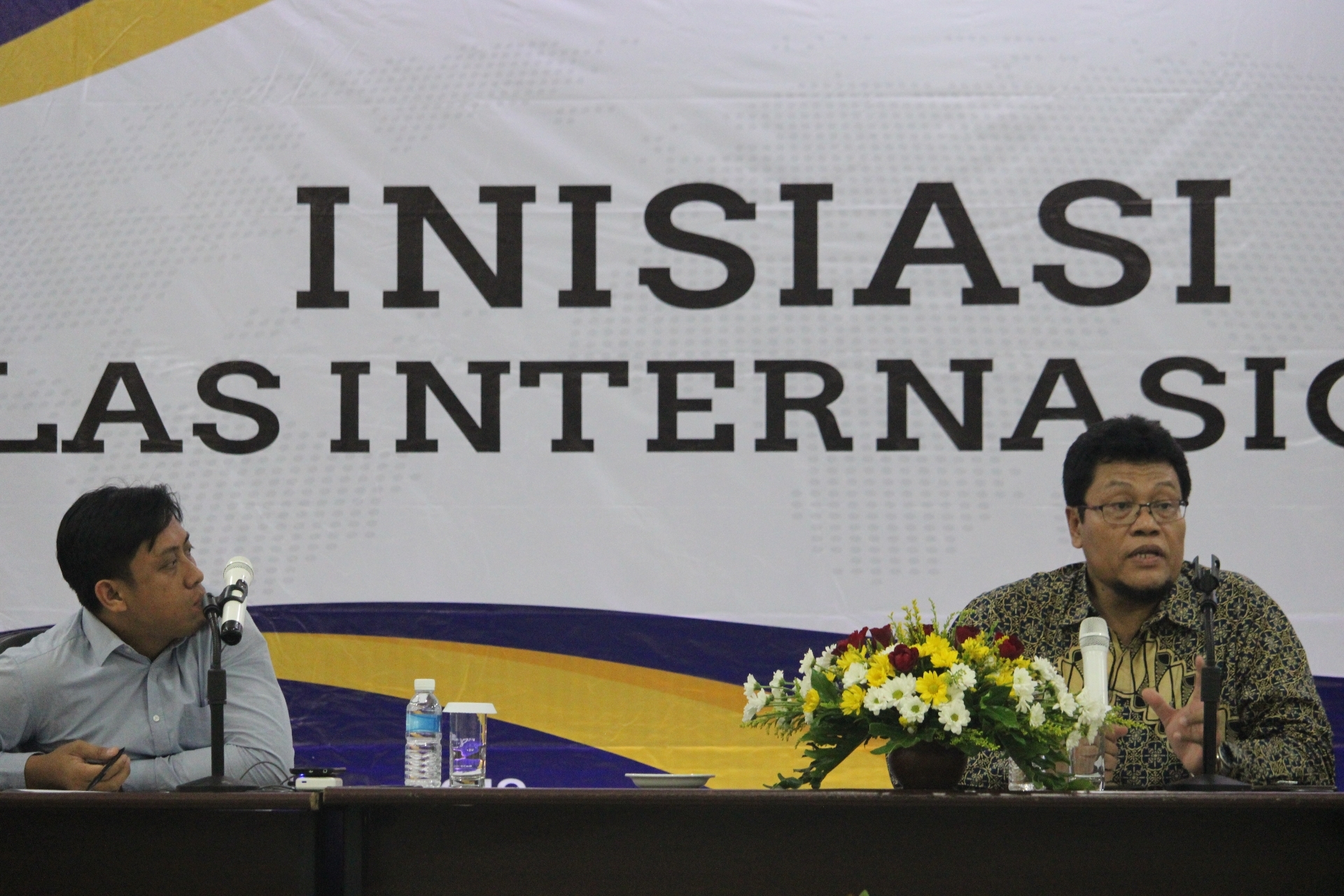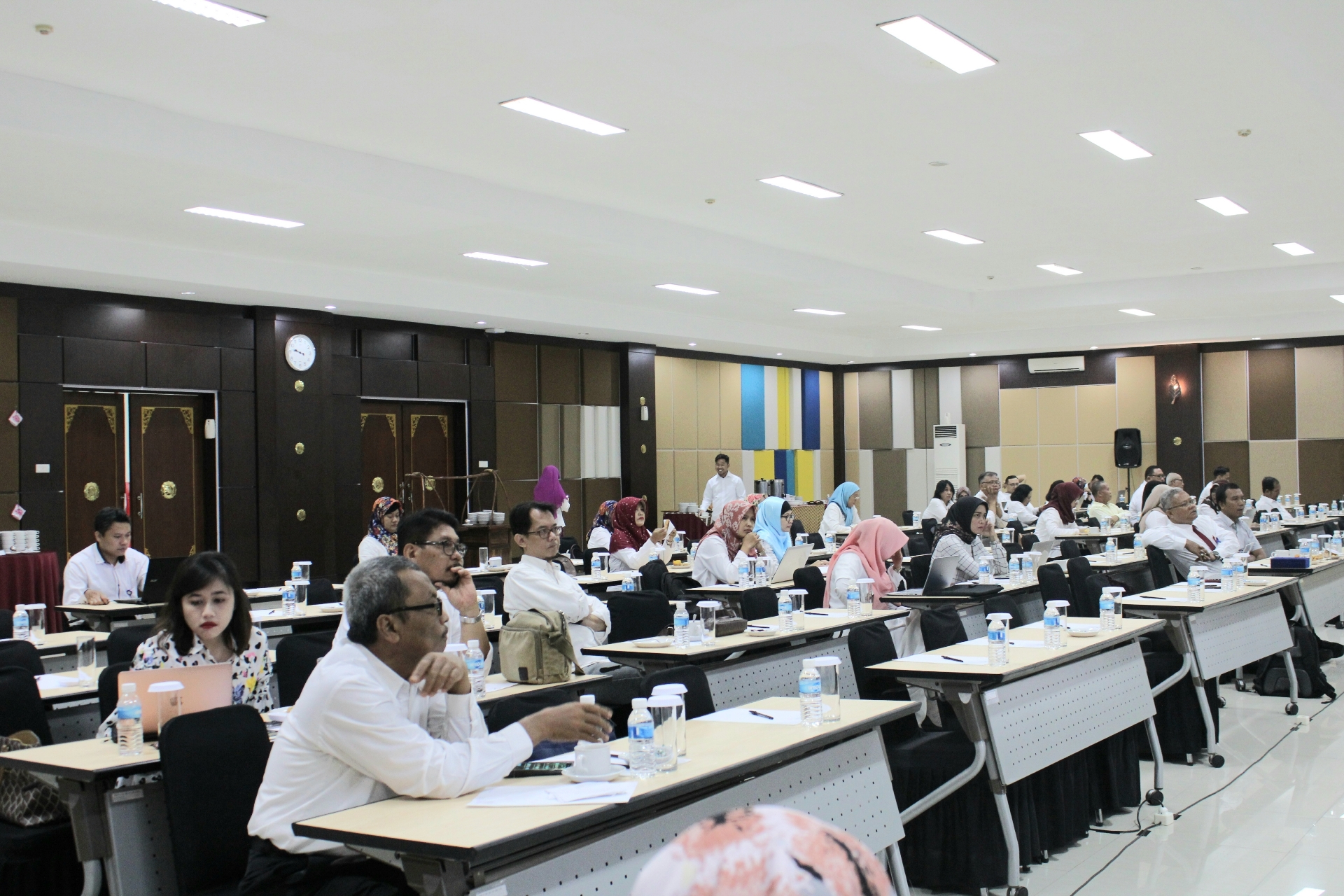
The Establishment of an International Class Needs a Collective Commitment
Initiating and implementing an international class is tedious work that needs collective commitment and supports from faculty stakeholders such as lecturers, study programs, the faculty, as well as the university. This was expressed by Prof. Anis Chariri, SE, M.Com, PhD., Ak., in the Workshop on International Class Initiative, by the Faculty of Economics and Business, Universitas Sebelas Maret (FEB UNS) on Monday, December 9, 2019.
Prof. Chariri shares his experience to the participants who were the Faculty members of FEB UNS, regarding how to initiate and conducting an international class in Universitas Diponegoro (UNDIP). International class leads to income generating that will contribute to the world class university achievement and motivate other programs in general. There are many aspects that need to be prepared started from the Lecturers, supporting program, and institutional aspect.
 International class is different from regular program not only in term of language but also beyond that. The Lecturers designed for international class should have certain criteria, not only proficient in English but also have a great discipline and understand the cultural differences. The supporting programs that needed in an international class are leadership and cross-cultural training camp, exchange programs, International Student or Culture Week, and professional certification.
International class is different from regular program not only in term of language but also beyond that. The Lecturers designed for international class should have certain criteria, not only proficient in English but also have a great discipline and understand the cultural differences. The supporting programs that needed in an international class are leadership and cross-cultural training camp, exchange programs, International Student or Culture Week, and professional certification.
Meanwhile, in term of institutional aspect, supporting infrastructures are needed. The availability of international office at faculty level, supporting staff with favorable English proficiency, special website, official English document, and collaboration with partner university. A double-degree program for the international student can be offered, also Credit Transfer System or Summer Course.
During the discussion, Prof. Chariri mentions that the hardest part in preparing an international class is related with the curriculum mapping with partner universities. “Regarding this, it takes approximately 6 months, because of the curriculum pattern that significantly different. The number of course subject offered in one semester in Indonesia is greater than those offered in partner universities, which usually ranged up to 4 courses only in one semester,” he explained.
For the afternoon session, a similar topic is presented with different audiences. For this session the audience consist of the Vice Dean of Academic Affairs and the Head of Study Program from all Faculties in UNS.
